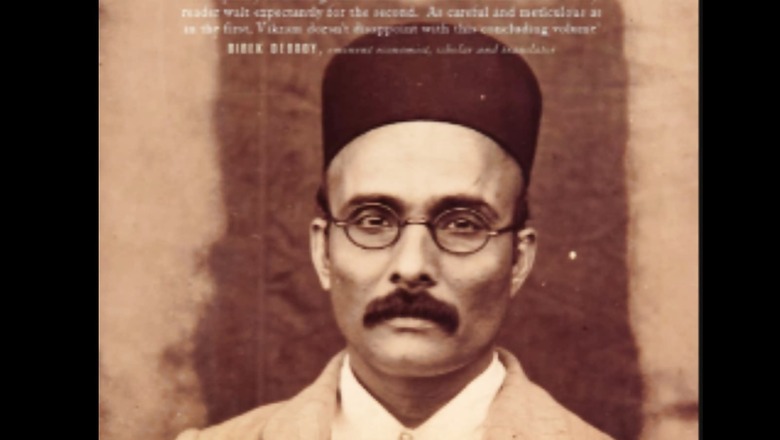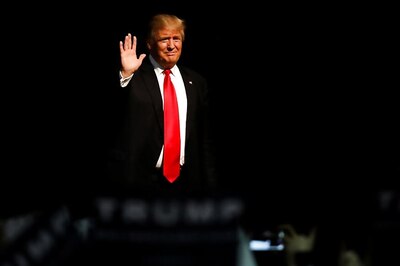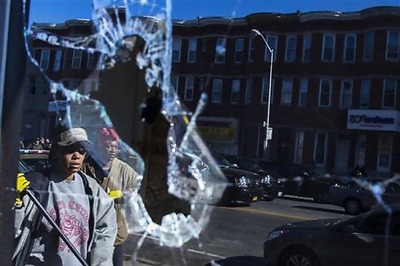
views
Did Savarkar write mercy petition?
Savarkar’s plea is often called a mercy petition, which is not true. It was a normal legal recourse available to political prisoners of that time. As part of the royal amnesty during the war era, several political convicts were let out as a goodwill measure by the British not only in India but across colonies in the world. It was not a special provision given only to Savarkar. Also, nowhere in the letter was he apologetic about what he had done. The letter was more the handiwork of an adroit lawyer who was arguing his case; he was also the spokesperson for other political prisoners whose cause he was representing, seeking clarifications about the nature of their punishment and their rights in prison.
Was Savarkar the only one who wrote such a petition?
Sachindra Nath Sanyal had written a similar petition claiming that he would abstain from politics, but after coming out of jail he formed the Hindustan Republican Association; Sanyal was again sent to the Cellular Jail after the Kakori episode. People like Lokmanya Bal Gangadhar Tilak filed such petitions. Even the founder of the CPI, Shripad Amrit Dange, filed a petition. Likewise, M.M. Malaviya filed petitions on behalf of the Kakori case convicts. In fact, Mahatma Gandhi himself filed a petition on behalf of the Savarkar brothers in 1920. So, it was a routine affair.
ALSO READ | Not Just a Hindu Nationalist, Savarkar Was a Rationalist Too, Opposed Untouchability
Was there a secret understanding between Savarkar and the British?
One is made to believe that Savarkar had written the letter secretly, in collaboration with the British. Far from it, he openly mentioned it in his Marathi memoir, Mazi Janmathep (My Transportation for Life), and also in Echoes from the Andamans, which published all his letters to his younger brother, Narayan Rao. Also, had there been any secret understanding between Savarkar and the British government, the former would not have been told to abstain from politics for five years, which later got extended to 13 years.
Was Savarkar behind Gandhi’s assassination?
The Gandhi murder case ended in 1949 after the Red Fort trial. Of all the nine accused, Savarkar alone was exonerated and acquitted. Nathuram Godse and Narayan Apte were executed, while others like Gopal Godse, Vishnu Karkare and Madan Lal Pahwa were given about 15 years of imprisonment. So, when the latter came out of jail in 1964-65, they were given a huge public reception in Pune. At that time, G.V. Ketkar, the then editor of Keshri, made a stunning statement that he had the knowledge of Gandhi’s murder much before it had happened and that he conveyed the same to the Maharashtra government and the Centre. It created a huge ruckus and the Jeevan Lal Kapur Commission was set up to look into Ketkar’s allegations.
There is no doubt that Godse and Apte were Savarakrite, a powerful clique in the Hindu Mahasabha. The Jeevan Lal Kapur Commission erred in equating Savarakrite with Savarkar when it said that because of the involvement of Godse and Apte, belonging to the Savarakrite group, there’s no doubt that Savarkar was behind the conspiracy. This was an extrapolation and there was no corroborative evidence to back this assumption.
As recently as in March 2018, the Supreme Court said, “The submission of the petitioner that Savarkar has been held guilty for the murder of Gandhiji is misplaced.” Over and over again, Savarkar has been given a clean chit, but due to political pettiness and one-upmanship, his name continues to be dragged in the assassination case.
ALSO READ | Critical of Nehru’s China Policy, Savarkar Wanted India to Emulate Israel
Did Indira Gandhi praise Savarkar?
On 8 March 1980, Pandit Bakhle of the Swatantryaveer Savarkar Rashtriya Smarak in Bombay (now Mumbai) wrote to then Prime Minister Indira Gandhi regarding the upcoming centenary celebrations of Savarkar. In her reply dated 20 May 1980, Indira Gandhi wrote: “Veer Savarkar’s daring defiance of the British government had its own importance in the annals of our freedom movement. I wish success to the plans to celebrate the birth centenary of the remarkable son of India.” She even made a private donation of Rs 11,000 to a memorial fund in his name.
In 1970, Indira Gandhi’s government had released a postage stamp too in Savarkar’s honour on his birth anniversary on 28 May 1970. The stamp had the portrait of Savarkar with a picture of the Cellular Jail in the background. On Indira Gandhi’s instructions, the Films Division that came under the Union Ministry of Information and Broadcasting produced a documentary on him. However, the political climate in India since the late 1990s preempts any such generosity and accommodation to opposing and alternative viewpoints and ideologies.
As told to Firstpost by historian Vikram Sampath, who has just come up with a book on Savarkar, Savarkar: A Contested Legacy
Read all the Latest News , Breaking News and IPL 2022 Live Updates here.




















Comments
0 comment